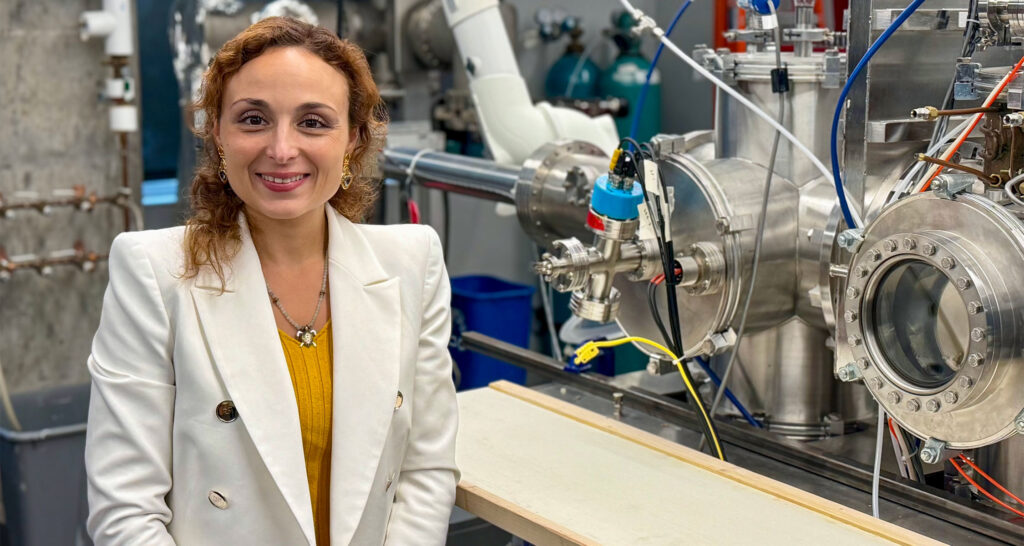Livia Casali, a professor in the Department of Nuclear Engineering, has been honored by the American Physical Society Division of Plasma Physics (APS-DPP) with the Katherine E. Weimer Award, which recognizes a woman physicist in the early years of her career for scientific achievements in plasma science.
The award cites Casali “for outstanding scientific contributions to plasma boundary physics and core-edge integration through innovative experiments and modeling supporting the operation of high-performance core plasmas, and for exemplary leadership.”
“I am deeply honored to receive the Katherine E. Weimer Award, which celebrates pioneering achievements in plasma research,” Casali said. “This recognition is particularly meaningful as the award returns to the field of magnetic fusion for the first time after more than a decade. In order to solve the most critical challenges in magnetic confinement fusion, I believe experiments and simulations must go hand in hand. Experiments uncover new insights; simulations turn those insights in physics understanding and predictive capability.”
Casali joined the faculty at UT after working as a staff scientist at General Atomics in San Diego at the DIII-D Tokamak. Her work focuses on boundary physics and core-edge integrated solutions with special emphasis on the role of radiative divertor, divertor detachment, pedestal fueling, impurity behavior and negative triangularity to solve one of fusion energy greatest challenges: integrating the hot plasma core with the cold material edge. Casali tackles this challenge by simultaneously working on cutting-edge experiments and modeling in fusion facilities around the world.
In 2022, Casali received the Department of Energy Early Career Award, the Nuclear Regulatory Commission Faculty Award for fusion development and was named ITER Research Scientist Fellow. Casali received her PhD from the Max Planck Institute for Plasma Physics in Germany.
Casali will be presented with the award at the APS-DPP annual meeting in November in Long Beach, California. The award consists of $5,000 and a certificate citing the contributions she’s made in the field.=
“On a personal note, I hope this recognition serves as an example for my daughter and for other young women—that curiosity, hard work, perseverance, and vision can shape the future,” Casali said.
Contact
Rhiannon Potkey (rpotkey@utk.edu)
